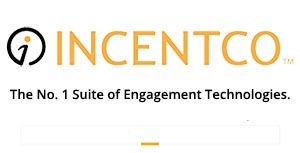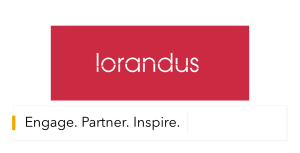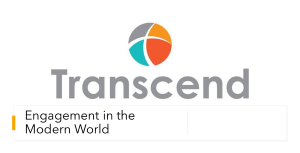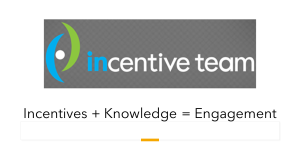EEA YouTube Show Panelists Predict SEC to Act Soon on Human Capital Metrics
 Two panelists on the recent Enterprise Engagement Alliance YouTube Show on the “State of Preparation for the EU Corporate Sustainability Reporting Directive in Europe and the US” predict that the US Securities and Exchange Commission will act soon to require US public companies to publish key human capital metrics such as costs and turnover.
Two panelists on the recent Enterprise Engagement Alliance YouTube Show on the “State of Preparation for the EU Corporate Sustainability Reporting Directive in Europe and the US” predict that the US Securities and Exchange Commission will act soon to require US public companies to publish key human capital metrics such as costs and turnover.Coming Securities and Exchange Commission Regulations?
EU Companies Beginning to Focus
Large US Companies Grappling With Jurisdiction Issues; SMEs Will Be Affected as Well
Status of CFOs and HR on the New Disclosure Law
In Europe, the Process Is Being Led by CFOs or Sustainability Leaders
A Growing Focus on Value Creation Through People
The Issue of Audited Reporting
Click here for links to information about EEA preferred engagement solution providers.
Four experts in human capital management, ESG (environmental, social, governance) law, ISO human capital standards and audits, and finance joined Enterprise Engagement Alliance Founder and CEO Bruce Bolger on an EEA YouTube show to discuss the state of the new European Union Corporate Sustainability Reporting Directive (EU CSRD). (The video failed to record due to a technical error.) Key insights from the program include:
In Europe, the Process Is Being Led by CFOs or Sustainability Leaders
A Growing Focus on Value Creation Through People
The Issue of Audited Reporting
Click here for links to information about EEA preferred engagement solution providers.
Four experts in human capital management, ESG (environmental, social, governance) law, ISO human capital standards and audits, and finance joined Enterprise Engagement Alliance Founder and CEO Bruce Bolger on an EEA YouTube show to discuss the state of the new European Union Corporate Sustainability Reporting Directive (EU CSRD). (The video failed to record due to a technical error.) Key insights from the program include:
- The Securities and Exchange Commission may soon announce new human capital disclosure requirements that include specific information on investment in human capital and employee turnover as soon as this year.
- After a period of “hibernation,” European companies have begun the education and gap analysis process to begin understanding if the EU CSRD should be viewed as an opportunity for value creation or merely a compliance issue.
- In the US, the largest companies are asking their legal departments to help them understand specifically what they will have to disclose based on many having multiple subsidiaries.
- Except perhaps at the largest companies, CFOs are still more focused on the pressure coming from customers and other stakeholders on sustainability issues, rather than regulators, although they are watching regulations closely.
- In Europe, the process so far is being led by the head of sustainability at companies that have one; otherwise, it’s likely led by CFOs (chief financial officers) because of their connections with all the different organizational stakeholders as well as experience with compliance and finance.
- The human resources community likewise has not truly begun to engage with the EU CSRD law, but there is in the profession a slow but gradually growing acceptance of analytics and understanding about the connections with other stakeholders.
- Pressure is gaining for a stakeholder approach to management more because of a growing focus on value creation through people than because of regulatory pressures.
- The stakeholder approach to aligning the interests of all stakeholders is new for many organizations and will a burden for some to adjust to in the short-term.
Note. Gary Gensler, SEC Chairman, recently told members of the US Chamber of Commerce that having US regulations on climate change and related matters “would allow US public companies that do business in Europe to tell European regulators that they're in compliance with US rules,” as reported by Pensions and Investment. "They have a different law, and we are not solving for their law, we're solving for US capital markets, US disclosure regimes and only the authorities that Congress has given us," he added. "Well, that's the goal."
The EEA show panelists were:
- Dr. Solange Charas, Member, Human Capital Technical Advisory Group for ISO 30414 Standards; Conference Board Distinguished Fellow; Adjunct Professor Columbia University, University of Washington; Founder and CEO of HCMoneyball LLC.
- Carmen X. W. Lu, Corporate Counsel specializing at Wachtell, Lipton, Rosen & Katz, considered one of the world’s leading law firms.
- Dr. Heiko Mauterer, Board Member for 4C GROUP Management Consulting, a Germany-based EU human capital advisory firm and auditor of ISO 30414 human capital reports for Allianz, DWS, and Deutsche Bank, and others and also a member of the ISO 30414 committee.
- Steve Rosvold, Founder and CEO of CFO University, and a former CFO for leading corporations.
For more details on their insights, read on.
Coming Securities and Exchange Commission Regulations?
Carmen Lu. The official timeline would suggest that we would have the proposed SEC regulations for climate and human capital this month, but we are nearing the end of the month. I would still suggest that we will see these proposed regulations by the end of this year and there are some who believe they could come out sooner.
Dr. Solange Charas. SEC Chairman Gary Gensler is not satisfied with the current disclosure approaches that allow companies to use their judgement about what they're going to disclose. He prefers a rules-based approach so that every public company would have to disclose information about human capital. This makes things much more interesting for CHROs and reflects the growing view that has evolved over the last several years that the SEC sees human capital not merely an expense but an investment in an intangible asset. When you hear the words investment or asset, you should begin to think of the “return” you should get on that investment. How is investing in that program or intangible asset building my company and achieving my financial goals?
EU Companies Beginning to Focus
Dr. Heiko Mauterer. There really was not a lot of attention to this law until recently because it had not become law. I think that this year, especially late spring early summer, a lot of companies really started to think about the directive, because now it is law. That means mandatory: you cannot choose if you want to implement it or adopt it, you must do it.
The initial steps are for key management across the organization to understand the stakeholder approach of the law in that it involves customers, employees, distribution and supply chain partners, communities, the environment, and governance. The next step is to conduct an initial gap analysis; collecting the data and starting the work of putting together the strategy for reporting because a lot of companies in Europe will have to begin reporting in 2025 for 2024. Most of our clients view this as a business opportunity, but I am sure that there are many who will view this as a compliance issue.
The reason why the EU passed this law is that it seeks to be the worldwide leader in sustainable business management. The law forces companies to define what they do and to understand the effects their businesses have on the whole value chain, all their stakeholders and even their communities, and the risks these stakeholders and environmental factors have on them. For some companies this is a heavy lift at first and I do think many companies will have trouble grappling with it. But in the end again I think this is a good opportunity for companies to really think about the impact they have on employees, customers, on their supply chain, on their on the communities, and in the markets they operate, because in the end this can make them better businesses.
Large US Companies Grappling With Jurisdiction Issues; SMEs Will Be Affected as Well
Carmen X. Lu. The first step for large US companies is to determine what aspect of the law, if any, is in their scope. And if they fall within the law, which entities are affected? Is it only the parent, or, among the subsidiaries, how many are affected because of the income thresholds? All these factors will help determine the most streamlined way of reporting.
Many SMEs (small- to medium-size enterprises) will be affected as well because CSRD encompasses the entire value chain, so any company in that value chain may find questions being asked. These requests could be more rigorous if the European Commission’s proposal for a Corporate Sustainability Due Diligence Directive (CSDDD) is adopted, which would require companies to establish due diligence procedures to address adverse impacts of their actions on human rights and the environment, including in their value chains. In any case, companies will have to be much more careful when publishing corporate sustainability reports, because there is a lot of attention being paid to greenwashing.
Status of CFOs and HR on the New Disclosure Law
Steve Rosvold. We are still in the early stages of this in the US. What’s driving CFOs right now are their companies' customers: if customers are demanding sustainability, that’s the major driver now. What makes this so interesting is that it’s a law. SMEs are keeping an eye on things, but they probably are not as far ahead as the EU where there are regulations coming into play now, or at the same stage as public companies, which could face new SEC disclosures that could be a big deal for them. I think CFOs will be thinking of the strategies and tools they can use to make these reports a benefit for the company, not only to make the regulators happy, but also their customers.
Dr. Solange Charas. It’s relatively early in terms of discussions among the chief human resources executive community in terms of complying with the CSRD and the ESRS (European Sustainability Reporting Standards), but overall I’m seeing an increased interest among CHROs about human capital as a driver of sustainable business performance from the perspective of social and financial impact...The way that I think best suits human capital is to think about it in terms of policy and practice. So, from a policy perspective, human resources should be developing and implementing policies to improve sustainable performance in relationship to all stakeholders--focusing on employees, which we already do, but also on customers and investors and the financial impact we have that many of us don’t currently leverage. And that's where I think the biggest change must come from a practice perspective. We need to identify and collect data on key human capital metrics and trends and use these metrics and insights to make sure what we are doing in human resources is actually supporting the company, not just the people in the company, but the company itself...We need to teach human resources people how to speak that language of finance and we need to strengthen the relationship between human resources and finance.
In Europe, the Process Is Being Led by CFOs or Sustainability Leaders
Dr. Heiko Mauterer. The first question companies should really think about is their strategy to tackle this regulation. It is a business opportunity or is it just going to be a compliance strategy? After that, it’s clear that there must be one function in charge to collect the necessary data and information needed for the reporting. If the organization already has a chief sustainability officer, that’s a good place to start. But for those companies without a sustainability officer, the chief financial officer is a logical function because they already are involved with gathering information across the organization and have the most experience putting together strategic reports.
A Growing Focus on Value Creation Through People
Steve Rosvold. We can’t just look at these reports without thinking about how we take advantage of them. I think there's certainly going to be a lot of places where companies are going to use this way of thinking to get better by addressing this more holistic way of looking at business. You know, companies can be siloed about how they look at their business. We must look at our businesses from a broader point of view, that of our communities, our investor base, our employees, our customers...These issues are already getting pushed into the spotlight anyway. This law is just going to help accelerate the process. So, if I’m CFO of even a smaller company, even if I don’t have to mimic a big company that has to follow the law, I could be thinking of the benefits that could be coming from the law, whether it’s in marketing or attracting talent. The entire premise is that we want to make the world better, and that attracts a lot of people. So there are lots of ways this law can benefit companies, but at the same time, CFOs are wrestling with a lot of other issues right now--inflation, labor shortages, geopolitics, so this will take time.
Dr. Solange Charas. The law provides a framework that enables you to better understand if you are managing your company well. By reporting on sustainability performance, companies can identify areas where they can improve their efficiency, reduce their unnecessary costs, and attract and retain top talent. For example, a company that is struggling to retain or attract top talent may use the CSRD reporting process to identify areas where they can improve their workplace culture; create more sustainable and equitable workplaces by listening to their employees and customers. The reports do not need to be a burden. They should be a way of creating transparency so companies can gain better insights about what they can do to make their businesses more successful in the marketplace.
Improving your business, that’s the spirt underneath the law. Start measuring. Stop looking at human capital as only a warm and fuzzy and qualitative in nature. Make it quantitative as well so that you can actually understand trends and so you can correlate those trends with other business success indicators in your organization.
The Issue of Audited Reporting
Carmen Lu. Regardles of the law, I think there's a strong reason why companies should consider auditing or at least having very robust, internal controls and internal audits at a minimum. The reason why is because we're seeing such a wave of greenwashing and increasing regulatory response to greenwashing. The SEC has really trained its eyes on green washing by issuers and other regulators across the world are also focusing on it. So I think we're no longer in an environment in which you can treat sustainability as an exercise. I think we're moving towards a world where sustainability reporting is going to look very much like financial reporting and should be given the same kind of rigor.
The CSRD is not the only series of reporting requirements that are going to be rolled out. We’re seeing companies more generally looking to have assurance for their reports because it is a statement that they have undertaken taken rigorous steps to ensure that, whatever data they are presenting, whatever metrics they're using, is accurate and has been checked by other credible, third-party authorities. I think the real little focus is credibility here. A company's credibility is on the line and so companies should not be looking to take shortcuts because ultimately the company is responsible for the accuracy of the reports.
ESM Is Published by The EEA: Your Source for Effective Stakeholder Management, Engagement, and Reporting
Through education, media, business development, advisory services, and outreach, the Enterprise Engagement Alliance supports professionals, educators, organizations, asset managers, investors, and engagement solution providers seeking a competitive advantage by profiting from a strategic and systematic approach to stakeholder engagement across the enterprise. Click here for details on all EEA and ESM media services.
1. Professional Education on Stakeholder Management and Total Rewards
- Become part of the EEA as an individual, corporation, or solution provider to gain access to valuable learning, thought leadership, and marketing resources to master stakeholder management and reporting.
- The only education and certification program focusing on Stakeholder Engagement and Human Capital metrics and reporting, featuring nine members-only training videos that provide preparation for certification in Enterprise Engagement.
- EEA books: Paid EEA participants receive Enterprise Engagement for CEOs: The Little Blue Book for People-Centric Capitalists, a quick implementation guide for CEOs; Enterprise Engagement: The Roadmap 5th Edition implementation guide; a comprehensive textbook for practitioners, academics, and students, plus four books on theory and implementation from leaders in Stakeholder Management, Finance, Human Capital Management, and Culture.
2. Media
- ESM at EnterpriseEngagement.org, EEXAdvisors.com marketplace, ESM e–newsletters, and library.
- RRN at RewardsRecognitionNetwork.com; BrandMediaCoalition.com marketplace, RRN e-newsletters, and library.
- EEA YouTube Channel with over three dozen how-to and insight videos and growing with nearly 100 expert guests.
3. Fully Integrated Business Development for Engagement and Total Rewards
Strategic Business Development for Stakeholder Management and Total Rewards solution providers, including Integrated blog, social media, and e-newsletter campaigns managed by content marketing experts.
4. Advisory Services for Organizations
Stakeholder Management Business Plans; Human Capital Management, Metrics, and Corporate Sustainability Reporting for organizations, including ISO human capital certifications, and services for solution providers.
5. Outreach in the US and Around the World on Stakeholder Management and Total Rewards
The EEA promotes a strategic approach to people management and total rewards through its e-newsletters, web sites, and social media reaching 20,000 professionals a month and through other activities, such as:
- Association of National Advertisers Brand Engagement 360 Knowledge Center to educate brands and agencies.


















